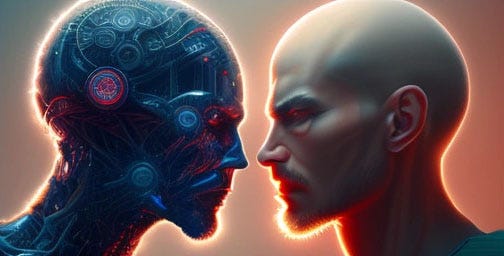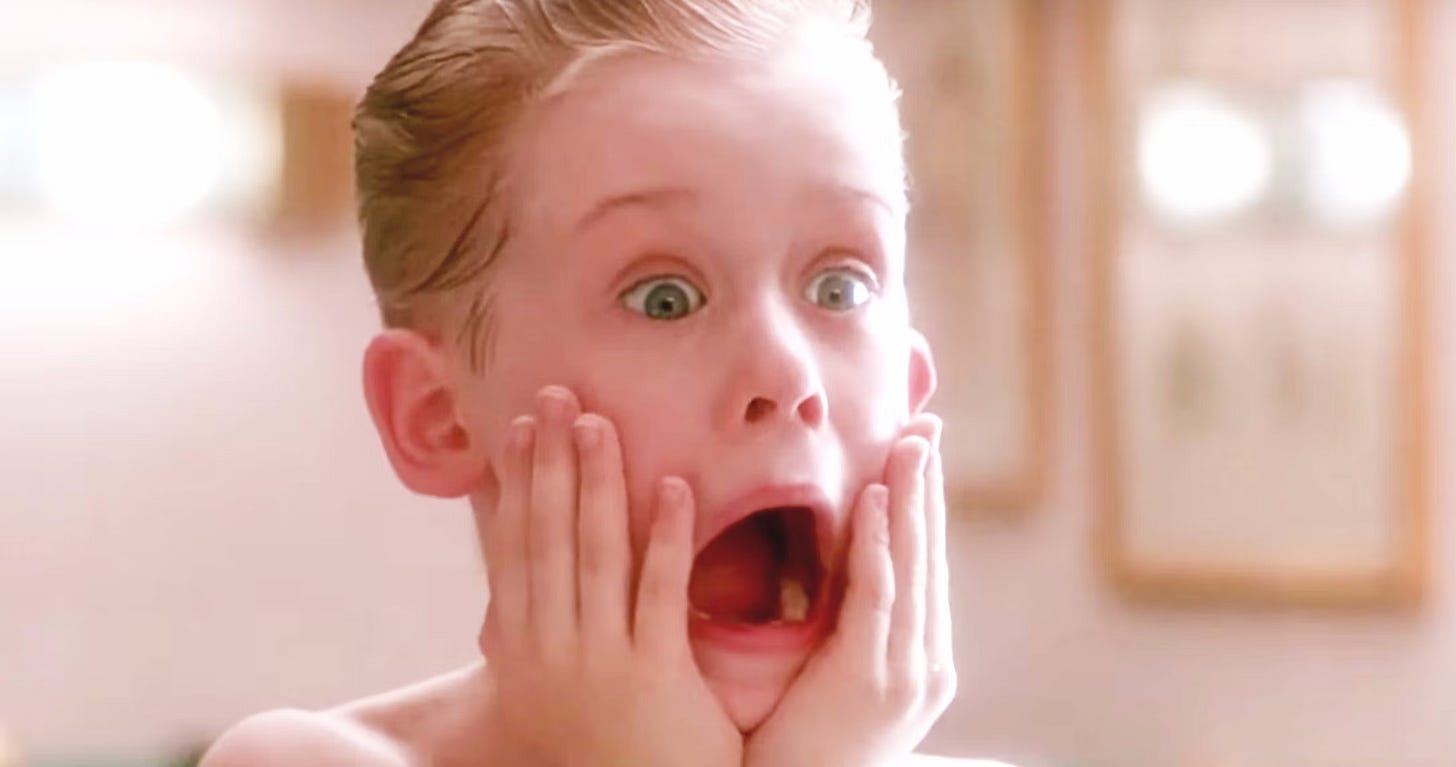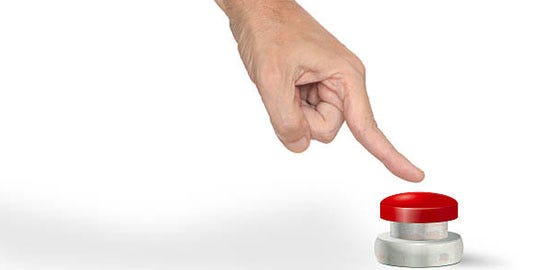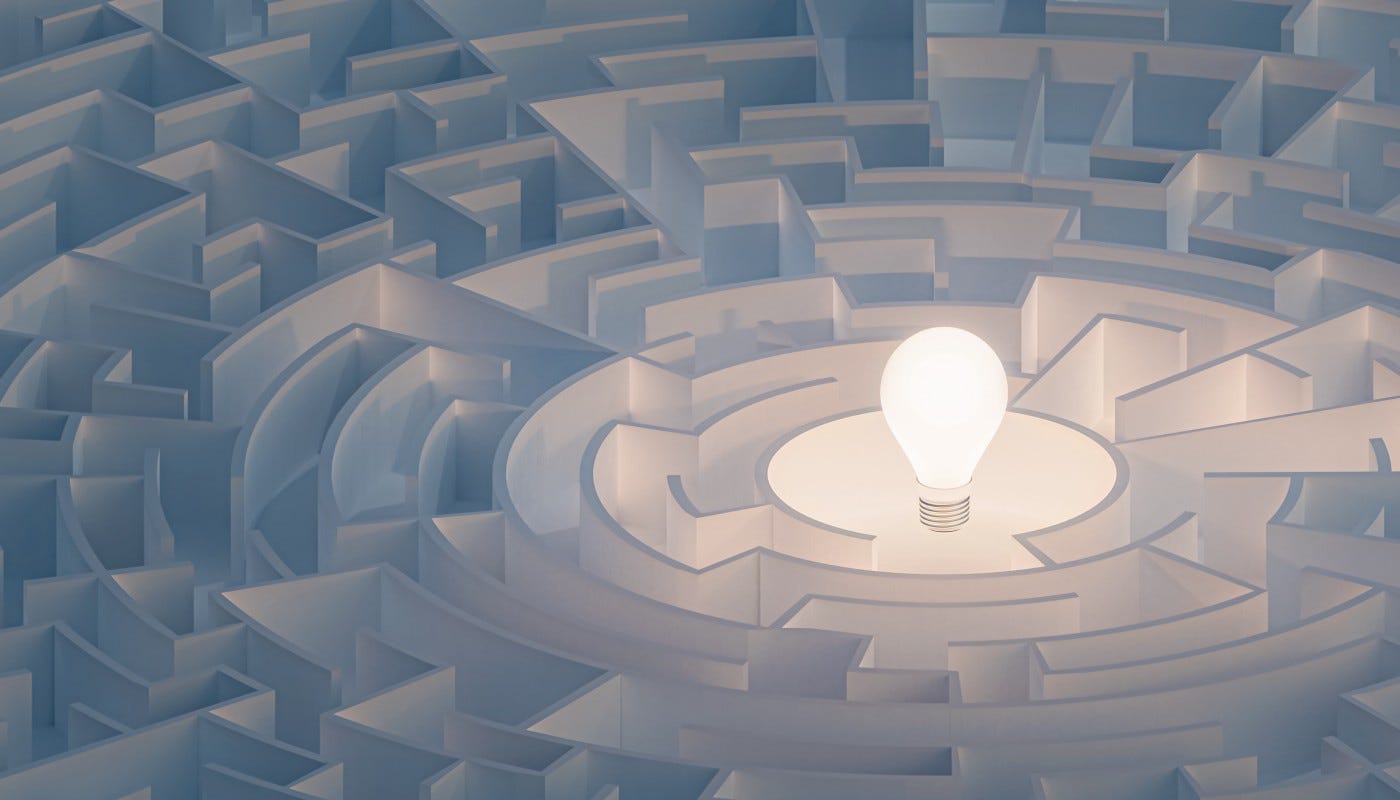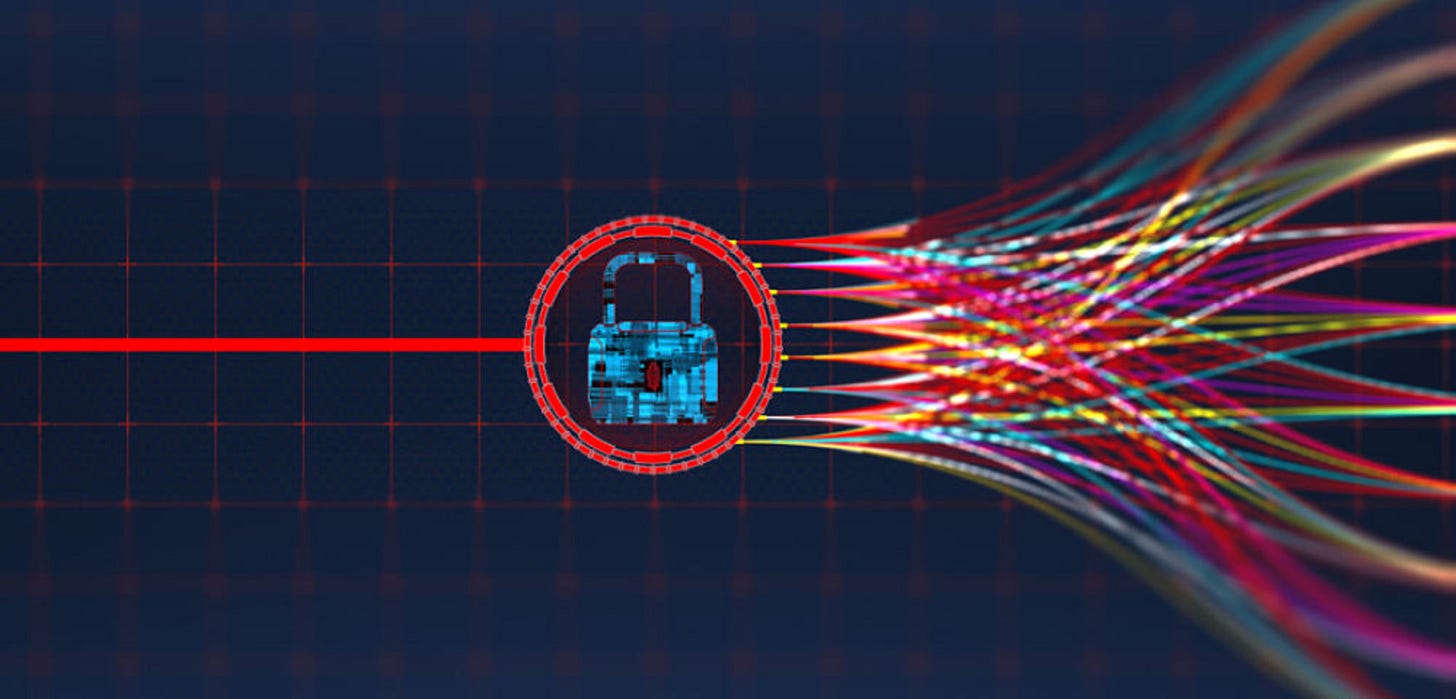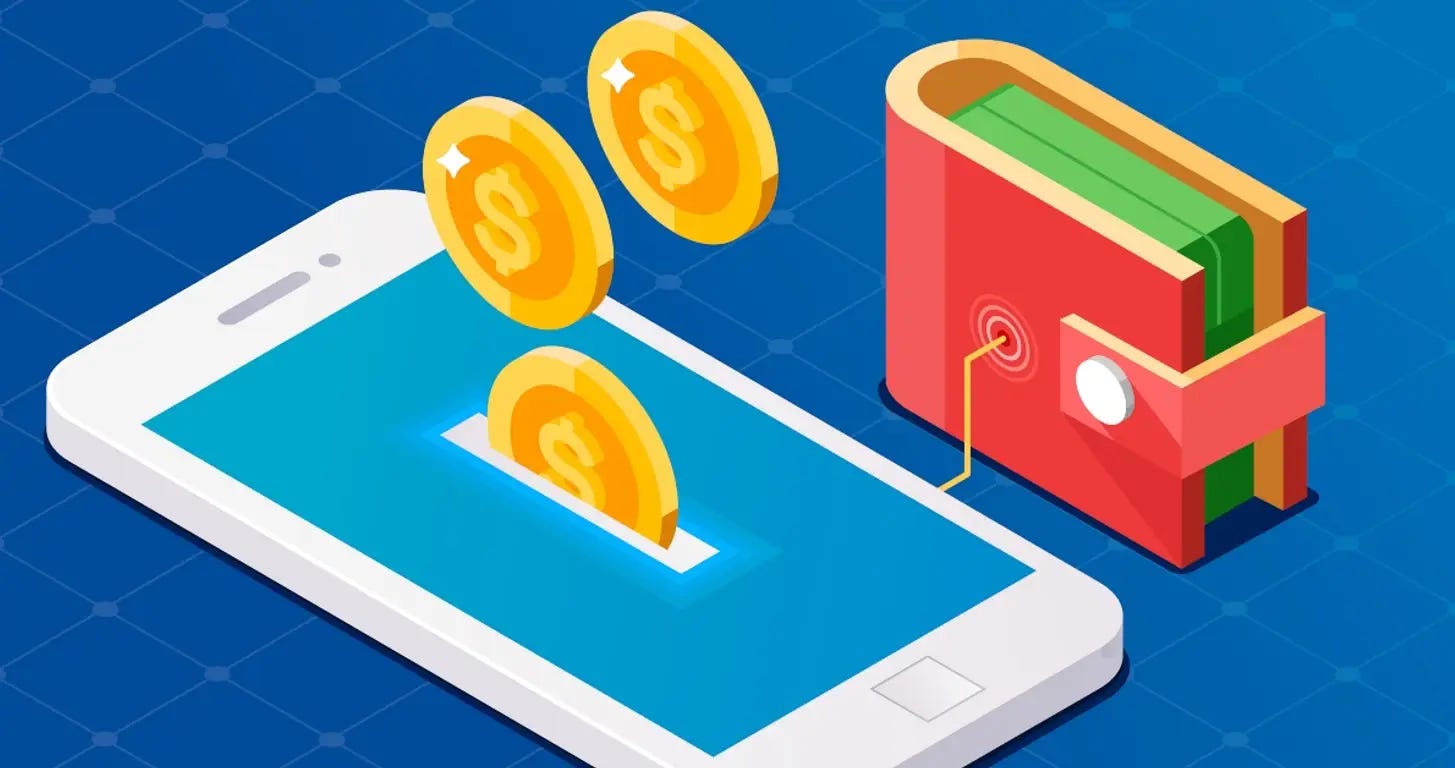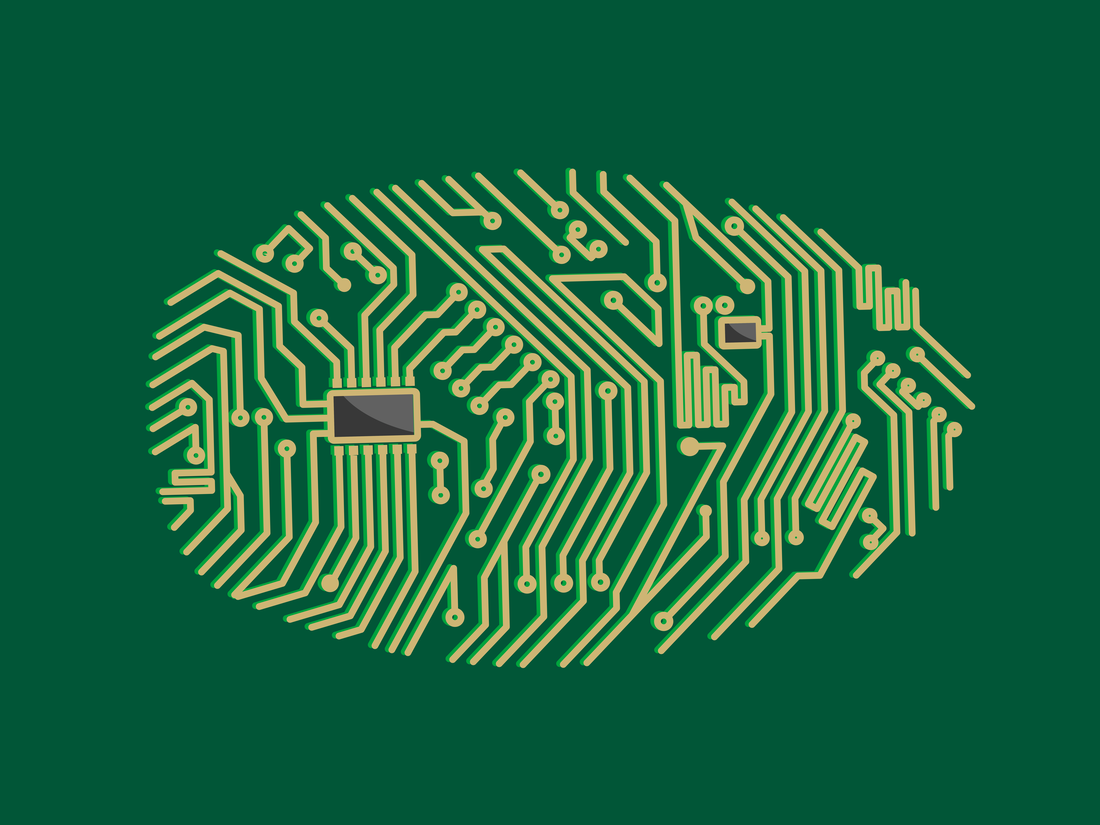A Perplexing Future For Creative Industries
Myths and Truths Surrounding The AI Debates From the Perspective of an Indie Filmmaker and Tech Founder.
Tensions have been escalating between artists who embrace the use of artificial intelligence (AI) and those who reject it. The situation has only worsened with the release of AI-powered image generators such as Dalle 2 and Midjourney. Many people fear that they may be replaced by robots, and this is reflected in the heated debates surrounding the legality of how they operate. Is this stealing our work and replicating our creative voices? Are we actually being displaced?
First, take a breather. Relax. Things are going to get wild, let's not sugarcoat it. We can all feel it. But it’s going to be okay in the long run because out of this chaos, a better solution for doing business will emerge.
For those who are reading my work for the first time, I’m an indie screenwriter/filmmaker, first, and a technologist, second, working with a team that’s developing AI writing and production tools. I got into this not because I want to see the creative industries burn to the ground but because I firmly believe that even though AI will be widely disruptive and over time destroy most jobs, it will also likely push us into a new industry model where most people will have the opportunity to make money by pursuing creative endeavors or by investing in the people who do.
No, this isn’t a utopian vision. There will still be poverty, war, murders, theft, fraud, corruption, and all of the other terrible things that plague us. But at least, as fans and creators, we could one day own the content we enjoy and collectively make a living from it.
And this could all be fueled by a new symbiotic relationship between the needs and desires of customers and creators that would emerge in creative markets if AI were to radically chip away at the leveraging power people have for getting hired by big studios and other major companies.
This sounds ludicrous and perhaps confusing, which is probably why I often get cast as a crazy person for speculating on this, but it’s what I genuinely believe will likely happen. No, not in five years. We’re a long way off from this future, but it’s where I think we’re going to end up, eventually, which is why I’m not freaking out about artists getting destroyed. It’ll be a long time before that’s even possible, and if/when it does happen, we’ll figure out a solution, which may be something akin to what I mentioned above. But who knows? I could be totally off. That’s for our future to decide.
Now, this isn’t to say that we shouldn’t be concerned about AI. There are plenty of reasons to be wary, but I don’t think we’re understanding exactly why we should be because we’re too wrapped up in a moment that’s full of misconceptions surrounding AI technology. So I’d like to take a moment and dispel some of these popular myths that have been floating around and then talk about the real problems and solutions we should be focused on.
1st Misconception: AI is Just a Button You Press to Generate Artistic Content
I believe this will one day be possible…But not today or tomorrow. And if or when it does become possible, no one will be using them because big companies will pounce on auto-generative media and creators will use AI-assisted tools. Regardless of who ends up using what, though, automated AI content generating is nowhere close to being a concern for us, today.
While technically it’s true that you can press a button and generate content, you also have to understand its limitations so you can see how it’s far better utilized as a supplement for streamlining your work rather than being a replacement for your own efforts. The two most popular forms of AI in the creative spaces, today, are natural language processing models (NLP) like GPT3, which essentially writes words for you, and Image Generators like Dalle2, which…Well yeah, we know what Image generators do.
Let’s start with NLP models. They’re fantastic for brainstorming ideas and continuing trains of thought but horrible when it comes to writing your story. First, there are limitations on the character length. In other words, it devolves into randomness over time. Granted, with newer models like GPT4, which is due for release this year, the character lengths will increase. And of course, you can always cut and paste what the AI wrote and have it continue the story so that it stays on track.
So yes, you can make a full script using AI…But all of them are terrible without a lot of human intervention, such as this one or this one. It’s an amazing feat that AI can do these things, but that doesn’t mean people are pressing buttons to turn their ideas into stories because they’ll inevitably end up with garbage.
Instead, writers are using it to create frameworks for building their stories, which is significantly streamlining their work. So it’s less about pushing a button and having it write for you and more about presenting possible ideas for building your stories.
It can also be used as a research tool and provide relevant answers, faster, when you need to know random hard-to-find stuff like, “What’s the standard procedure the fire department uses to put out fires.” Now instead of doing endless Google searches and reading heavy text, you’ll be able to ask AI and it will give you the specific details you need. This is still early, so by no means is it 100 percent correct, but eventually, it’ll be so accurate that writers will be using it for this purpose.
And when it’s that good, you’ll also be able to use it as an interactive evaluator. We all know how hard it is to get someone to read your feature-length script and give notes. It’s not impossible, of course, but it can take quite a bit of effort because chances are, you’ll have to read their 120-plus page script. With AI, you’ll be able to get instant feedback without all the quid-pro-quo. But again, it won't be perfect, so it’ll still boil down to how well you can write.
Now let's examine the image generators. Admittedly, these are powerful, and yes, artists who do contract work to produce cheap art for the average person are pretty much already out of a job. This isn’t to say that artists are done. It just means the nature of their jobs will change because just like with the NLP models, image generators have their limitations, as well. For one, it’s not just about pressing a button. It’s about knowing how to communicate correctly to the AI model so that it can create what you want. That can take hours to do well.
Granted, as this space evolves, new companies will integrate back-end work to make communication easier. But even then, due to its probabilistic nature, it can’t give you exactly what you want like a highly skilled contractor can. Instead, it can give you decent approximations, which can work well for professionals like bloggers or businesses who just need some pretty photos that are affordable.
But what if you need something with exact specifications? What if you need something with insanely high resolution? What if you want something that is truly one-of-a-kind? AI can’t give any of these things to you because it’s limited by its training data and ability to understand instructions.
On top of that, its resolution sizes are limited, for now at least, and even though it won’t make the same thing twice, it’ll still be generated art, which will be far more ubiquitous than hand-drawn paintings. So if you want ultra-specifically designed high-res art that’s truly rare then you’ll probably want to hire a real artist. AI can only help creators produce things, faster for you.
The possibilities for what creators can do with AI are only limited by our creativity, but one thing is certain. If you plan on making products to sell by just pressing a button then you’re sorely mistaken, particularly when it comes to writing. It’s great for streamlining the process. It’s bad for taking over the process. That’s why in the foreseeable future creators will use it for things like brainstorming, evaluating, researching, or visualizing. They’re not going to use it to replace their own efforts. Will this change as AI progressively gets better? Probably, but as I mentioned in the beginning and what I’ll expand on further down, there is a possible solution to this beyond a UBI.
2nd Misconception: AI Steals Original Work
This is by far the most contentious misconception out of all of them, particularly with image generators, but it is, in fact, a misconception.
Most people think AI has a stored database full of intellectual property that takes aspects of the data and appendages them together based on the request a user makes with a written string of text or an image. If that were the case, then it wouldn’t be AI.
The easiest way to explain it is with this analogy. Let’s say I give you a bunch of books and paintings to study for a while. Then, I take them away and tell you to create something for me.
This is how AI works. The program trains on billions of different pieces of content, but the whole thing can fit on a thumb drive and work without an internet connection. This is because it isn’t storing and extrapolating data. It’s using what it’s learned and approximating an output based on the user’s request. In other words, it’s trying to guess what you want, and it’s using its knowledge to try and give you want you’re asking for.
That’s completely different from stealing people’s work. It’s recreating style in its own way, which isn’t subject to copyright infringement nor should it because at the end of the day, all of us build our creative works off of one another. No one comes up with stories or artwork in a vacuum. We learn from each other and borrow ideas. AI is doing the same thing only at a more rudimentary level. But since it’s digital, it can scale its production output dramatically more than we can, which does threaten some jobs in the short term and potentially many jobs in the long term, but that’s a different matter, altogether.
Now, does this mean it can’t re-create existing artwork? Well, that depends on the model. We’re in the early days, so there are a lot of them out there, and some of the lower-grade ones can re-create existing content. But businesses don’t want to make products that will re-create existing work for people to steal because there isn’t a market for that, especially since we already have an app. It’s called, “Save As”.
So over a relatively short period of time, you’re going to see the top AI businesses using more optimized models that ensure unique content as well as styles that will veer further away from the original content it was trained on. And with better backend work on these sites, I can almost guarantee you that no one will be making the argument that it’s stealing their work. Instead, they’ll be arguing that it’s stealing their jobs!
3rd Misconception: AI Will Steal Our Jobs
AI will likely destroy most jobs in the long run, but new ones will be created because of the market. And by market, I don’t mean big wigs in ivory towers deciding how we work. I mean, us. It’s true that our economic system is morbidly corrupt, but still…Resting at its foundation is this long-standing relationship between businesses and customers that allow us to adapt and find solutions to the disruptive changes that destroy our ways of doing business.
People want solutions to their problems. And companies want to find solutions for boatloads of money. That’s basically business 101. Obviously, many have adulterated this relationship, but it's still alive and well.
I mean, just look at Final Draft. Before, writers were using Word to craft their screenplays and that added a major formatting dimension to their workload, which made writing harder. But then Final Draft found a solution and released a writing app that auto-formats everything, along with a whole bunch of other tools that streamline people’s work. There was a problem writers had, the founders of Final Draft recognized this pain point and created a solution that worked for their customer’s needs. This is called, “Product-Market-Fit” and it’s exactly how a business goes from nothing to making profit.
Businesses must always find their own unique problems within their markets and try to solve those problems. Otherwise, you can’t have a modern economy, regardless of whether it’s Capitalism, Socialism, or something completely different.
To understand all of this better, let’s dive into the most extreme future scenario with AI (short of Skynet destroying everything) and see how businesses and consumers (the market) might respond based on this basic relationship between entrepreneurs and customers.
Let's imagine AI is so good that 70 percent of the workforce is out of a job, including writers and filmmakers because now, big studios are using automated generative media and consumers are getting endless streams of content that directly speaks to them. This is a World characterized by an abundance of low-cost goods and services, but it’s also a World characterized by an abundance of jobless customers, which means no one’s paying for anything. If that happens, the entire economy collapses unless the markets, themselves, find their own unique solutions to prevent this from happening.
If we live in a World where 70 percent or more of the jobs are automated, then it's possible that three demands from two particular groups could intensify so much that it pushes businesses and governments into finding a solution.
First, there are the creators who will demand a way to make a living off of the things they create, whether they’re using AI to help them or not. Second, there are the consumers who will demand ways to earn money since they won’t be able to do the traditional 9-5s. Third, there are the consumers and creators, alike, who will demand products and services that veer away from the fenced-in plastic stuff that big companies will mass produce using AI, a demand that is arguably already here.
If these three demands skyrocket because of automation, then I believe they could eventually fuel a future entertainment industry characterized by businesses being managed by top professionals but owned by creators and fans within robust de-centralized market networks where creators could collaborate and make stuff and consumers could not only get high-quality alternative goods and services but also invest in those creators directly through asset tokenization.
Think about it. In this hypothetical future, almost everything would be automated away. Most people couldn’t hold jobs. Most creators couldn’t continue doing what they love. All of this would be ruinous to our economy and our art because no one would be able to buy anything, even if everything was cheap. The government could implement a UBI, but that would be supplemental, at best. I mean, the idea of everyone living on 2k a month…Yeah, that’s depressing.
Given these issues, then, there would naturally be a demand for solving them that governments wouldn’t be able to do on their own. So businesses and consumers would need to step in and radically alter industry models, across the board. This could mean massive digital spaces where anyone could create, market, and distribute stuff as well as tokenize their channels, shops, or personal studios for consumers to invest in, directly.
Creators would want to participate because they’ll need a way to make a living doing what they love. And consumers would want to participate because if they can no longer work to make money, then they would have to invest in things in order to sustain their efforts to grow their personal wealth. Right now, this kind of industry model would be limited to a niche group, but with automation, the entire market, itself, could be pushed in this direction and if most people are participating in it, then you’re talking about the birth of a massive tokenized economy, which could bring forth a kind of universal basic equity.
This means that consumers and creators, alike, could easily diversify their assets into an array of different ventures from the company that makes those really nice socks you wear to the personal studio that makes the best content for you. And with AI-assisted generative media tools, creators could boost their productivity levels tenfold and make Hollywood-quality movies for a fraction of the cost and time that it takes, right now, which would allow them to meet the demands of consumers the same way big studios are able to.
Re-structuring the entertainment industry like this could solve the issue of runaway automation since creators would be able to continue making content for money and consumers would be able to continue making money through universal basic equity, which would allow them to continue buying things. And if these neo-cottage shops proved more effective at producing stuff…Well, then it's possible we could see the end of mega-corporations dominating the industry spaces and the beginning of networked syndicated groups of professional individuals working directly with consumers, making money off of their business ventures.
So in a real sense, AI could create some serious problems, but those problems could push us into forming a symbiosis between creators and consumers characterized by our needs and desires driving sustainability in our economy. It’s a radical solution, but hey…This is radical tech that’s already proving disruptive, so it’s entirely possible that this is where we’re going. Either way, we have plenty of time to work this out because AI is a long way off from automating most things. So, again, relax. It’s gonna be okay…I think.
Conclusion
Look, I’ll be honest. AI is fascinating, but it’s also kinda freaky. Now that we’re entering this new era of tech, I do think it’s important that we examine this carefully so we can formulate proper solutions to the negative externalities that are already occurring. But AI making artists lazy or stealing IP are not the right problems we should be focused on. Jobs? Sure, eventually, but for now, we’re okay, and by the time we have to worry about that, the market will likely have found a solution. What we should be focused on right now are misinformation and identity verification.
The models are only as good as the data, and even then because it’s based on probability statistics, it’s not always right even if it sounds right. So you can imagine a lot of people looking at it for guidance, and if they don’t know enough about the subject they’re looking into, they could accept truths that aren’t even real, something we’re contending with at this moment, even without AI.
Then, there’s the issue of bots. Consider the ones we have, today. Now, imagine those bots being much more life-like and autonomous so that they can do things like swarm an online stock exchange and buy the same stock to manipulate the price or flood online forums and drive wedges in the communities by spreading polarizing and highly charged content. And this isn’t even factoring in deep fakes, which are already good enough to make fake videos of people saying whatever they want them to say.
As this technology progresses it will undoubtedly grow harder to discern between what’s real and what isn’t; what’s true and what’s false. It could get so bad that the whole internet is flooded with bots, which would render the entire digital space fake. That would mean almost every YouTuber, blogger, feel-good video, news piece, and whatever other content you stumble upon could be completely fabricated and you wouldn’t even realize it. That’s a serious problem when the Internet is the primary source that people use to understand the World, today. If it all becomes fake, then our perception of reality becomes fake.
But like all technology, AI is a double-edged sword. So there will be a lot of amazing things to accompany these problems, which means we shouldn’t throw the baby out with the bathwater. I mean…We can't. That would be like throwing away the car or the light bulb. We have to learn how to live in a World with AI, which means we have to understand both its positive and negative implications so we can build these things appropriately. Otherwise, we can’t make the World we want. We’ll simply get the World that comes. For better or for worse.
Story Prism, LLC
_______________________________


